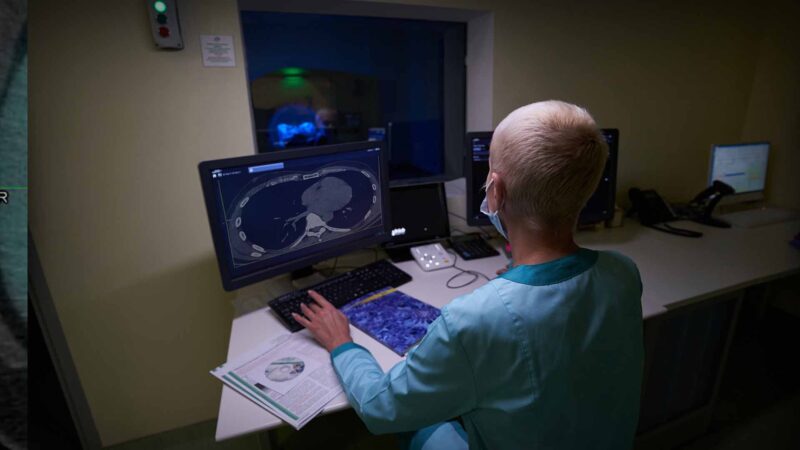Next week, at the Perth Convention and Exhibition Centre, The Royal Australian and New Zealand College of Psychiatrists (RANZCP) meet for the RANZCP 2023 Congress on the theme of “New Horizons: Connected Futures”
Delegates have been invited to reflect on how interconnectedness is a strength; and connections with each other in personal and professional lives, connections with the diverse cultures in communities, and connection to place with First Nations people.
Looking forward delegates have been asked to consider the next horizon in biological psychiatry and the delivery of evidence-based treatments. They have been asked to consider how the criminal justice system, mental healthcare system, disability sector and drug and alcohol services are interwoven and how to provide care that is integrated, and person centred.
Australian Health Journal spoke to current President-Elect Dr Elizabeth Moore and soon to be President, RANZCP about the Congress, as well as the recent Federal Budget announcements around mental health funding.
The RANZCP has welcomed a number of measures:
- $260.2 million over two years from 2023–24 to extend Commonwealth psychosocial supports for people with severe mental illness who are not in the National Disability Insurance Scheme (NDIS)
- $0.9 million over two years from 2022–23 to develop a 10 Year National Action Plan to support the health and wellbeing of Lesbian, Gay, Bisexual, Transgender, Intersex, Queer and Asexual (LGBTIQA+) people and establish a LGBTIQA+ Health Advisory Group.
- $40.0 million over 4 years from 2023–24 to establish the National Clinical Quality Registry Program for tracking the safety and performance of treatments and devices, thereby improving performance reporting for clinicians and hospitals.
- $4.9 billion over 5 years from 2022–23 (with $1.3 billion per year ongoing) to increase support for people receiving working age payments including the JobSeeker Payment. As noted in the College’s submission to the Senate Inquiry into poverty in Australia, we urged for an increase to the allowance rate for Australians accessing government-funded payments, including JobSeeker.
However, while there are some positive measures for mental health, RANZCP believe funding has been weighted to wellbeing initiatives and primary care. Australians experiencing the most serious mental health conditions, with severe, complex and chronic presentations have missed out on vital support in this year’s Federal Budget.
A particular group of concern is children. Around 3 in 4 children with a severe mental health disorder are missing out on critical support, according to Dr Moore.
Out of the 80,000 children in Australian with a severe mental health condition, only 22,000 are currently being seen by a psychiatrist, stating the case that more child and adolescent psychiatrists are needed to meet the needs of children.
You Might also like
-
25 years of non-indexation of nuclear medicine impeding access & affordability
The President of the Australasian Association of Nuclear Medicine Specialists (AANMS), Associate Professor Sze Ting Lee spoke with Australian Health Journal about the following:
Usual levels of nuclear medicine services in Australia each year
Current levels of nuclear medicine services in Australia
How changing demographics in people moving to regional areas has impacted access to nuclear medicine services
The nuclear medicine workforce including trainees
The key recommendations from the pre-budget submissionIn the lead up to the Australian Federal Budget in May 2023, Australian Health Journal reached out to peak health industry bodies to hear about their priorities, either noted in pre-budget submissions lodged with Federal Government in January 2023 or in recent forums such as the Strengthening Medicare Taskforce.
-
Strategic research investments for health and prosperity
The CEO of Research Australia, Nadia Levin spoke with Australian Health Journal about the following:
– Current medical research and development landscape in Australia
– Investment required to support the Health and Medical Research and Innovation pipeline
– The National Medical Products Industry Plan and its impact on the Australian economy
– The Health and Medical Research WorkforceIn the lead up to the Australian Federal Budget in May 2023, Australian Health Journal reached out to peak health industry bodies to hear about their priorities, either noted in pre-budget submissions lodged with Federal Government in January 2023 or in recent forums such as the Strengthening Medicare Taskforce.
-
Pharmacy led men’s urological health
Men’s urological needs refer to the medical and surgical conditions that affect the male urinary tract system and reproductive organs.
A urologist can address these concerns, however a pharmacy-led model of care developed by Brad Butt, called Mens Health Downunder has offered an alternative to certain urological needs of the male adult population over the past 10 years.
Australian Health Journal met with Brad to hear about his journey, Mens Health Downunder and the impact the pharmacy-led model of care has had on patient’s urological as well as mental health.



